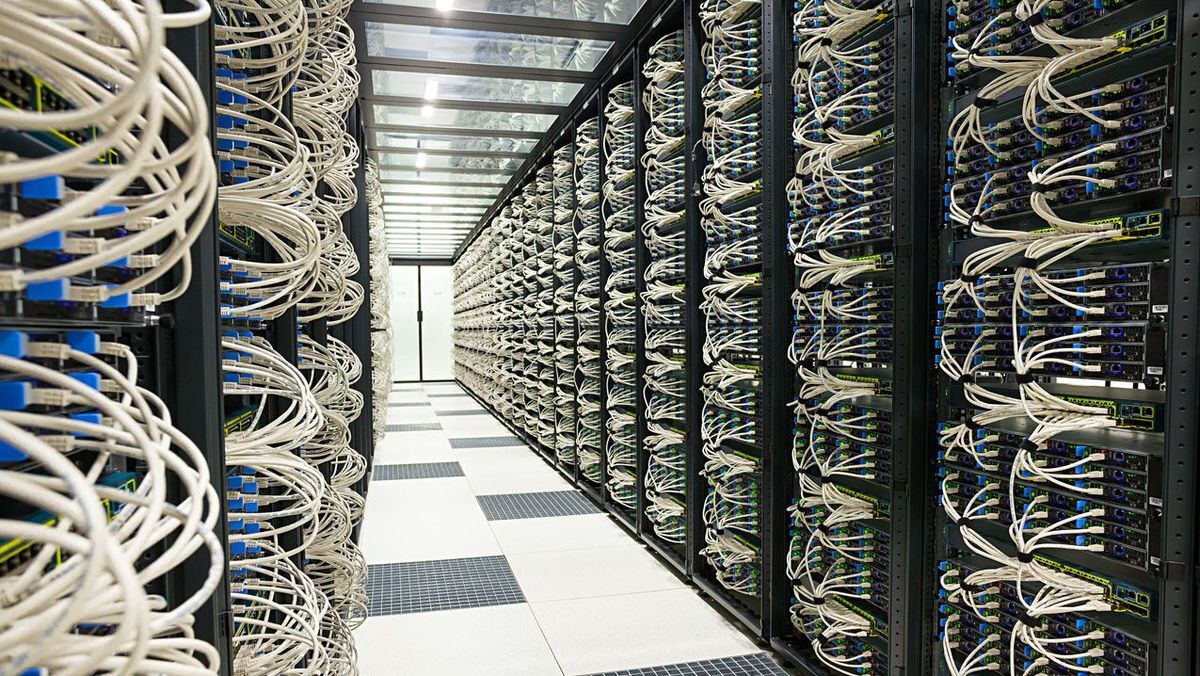- cross-posted to:
- futurology@futurology.today
- cross-posted to:
- futurology@futurology.today
cross-posted from: https://lemmy.ml/post/20289663
A report from Morgan Stanley suggests the datacenter industry is on track to emit 2.5 billion tons by 2030, which is three times higher than the predictions if generative AI had not come into play.
The extra demand from GenAI will reportedly lead to a rise in emissions from 200 million tons this year to 600 million tons by 2030, thanks largely to the construction of more data centers to keep up with the demand for cloud services.
“The only way to interpret statistics is with a healthy dose of skepticism and a thorough understanding of their context.”
While people in this thread jump at the opportunity for this slice of statistics to affirm their confirmation biases, intelligent people will ask what the total carbon dioxide output looks like by comparison.
You’re quick to imply that this study is bullshit, yet offer no counter argument except “believing statistics is for losers lul”
So where are your sources to refute the article?
Never said the study was bullshit. I just said to look at the bigger picture.
I would show you how Google works and provide an article, but your reading comprehension leads me to believe you’d come up with another straw man fallacy to support your confirmation bias.
Oh fuck off already, nobody cares.
Do we have an iamverysmart community? We could use one.
Lol you cared enough to respond. Sorry you’re too stupid to hold a conversation.
Where are their numbers coming from? The central registry of carbon emissions for genAI data centers? They know shit. They’re probably shorting Nvidia and are crying over their losses. Fuck Morgan Stanley
Every IT company now: we should increase our server costs by 100x to offer unwanted gimmicks that users don’t want and aren’t willing to pay
And don’t trust
Which search engines give results without an AI generated response?
Startpage and DuckDuckGo, but you might want to disable summaries in the latter’s settings.
It’s a nice gimmick and sometimes fun but probably not worth it given the state of the planet already.
Look, i’m not saying that this isn’t a problem. My only question is, is this one of those “global warming is because people don’t recycle their soda bottles” things? In other words, How concerned should I be about this vs, taking attention away from the energy, beef, and transportation industry?
Very concerned. It’s currently a race who can speed run us to extinction first.
deleted by creator
It’s a percent against the world’s emissions. Be concerned less with this. AI is the current hate train whipping boy, and takes the pressure of public focus off the biggest polluters.
There exists an alternative that uses a lot less power. And also that power is going to get spent no matter what anyway.
and also that power is going to get spent no matter what anyway
Yeah but it leads to higher bills for consumers, and generators can get spun down, and it’s keeping fossil fuel plants open, etc.
The alternative I was talking about are called employee brains.
Lesson: only ask AI if you’re still stuck after searching and have no colleage around.
This is the “carbon footprint” fallacy created by big oil. We should vote left and unionize until either the external cost of pollution is internalized with pigouvian taxes, or electricity is rationed by a community-owned organization.
Nobody will notice us shooting ourselves in the foot and expecting corporations to do it too. They don’t care if we lead by example unilaterally.
This is posted every week with different numbers. I don’t care if data centers use a lot of electricity. They run very efficiently and are a necessity for our modern lives. You have no idea what is being run inside those data centers ai is so much more than chatgpt.
Removed by mod
Oh yea, this is happening too.
If I run some AI model on my GPU and power my computer via solar power and some batteries, am I actually contributing significantly to GHG emissions?
Like what is the embodied energy of an AI model?
As usual, pundits and scientists confuse what is and what could be with the truth. For example plastic recycling isn’t possible because “right now economics don’t make it profitable”. Meaning capitalism is killing us, not plastics. I suspect the same is true for AI.
The model has to be trained, refined, etc. You running it off grid isn’t the entire process, but I agree with you in a different sense.
If not AI, then there would be some other kind of compute taking up server capacity. It’s on the data centers to solve this one, not AI.
yea but the models are already trained and noone pays to use the open source ones, so you’re not really contributing to the training greenhouse gas emissions if you use an open source gen ai model locally.
Training a model isn’t free. It takes money and compute. That’s also the greenhouse emissions. Even if you don’t pay for any model and run it locally using solar, you’ve still got to consider what came before.










